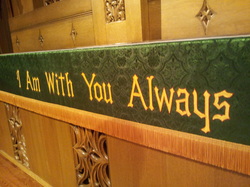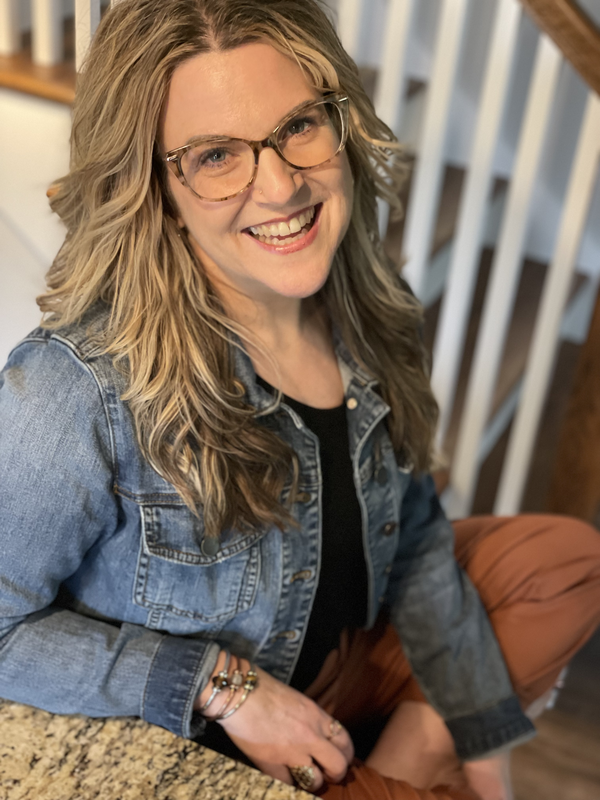 For the first 25 years of my life, I was not a United Methodist. I grew up in a Baptist church that taught me well how to have a personal relationship with God. I anticipated church camp every summer, a time that was a truly formational part of my life. When I moved states to pursue college, I couldn't find a church that I felt comfortable in within the same denomination. I never connected and floated around for a bit without a church home. Then I started attending church with my fiancée in the church he grew up in, a United Methodist Church. I felt much of what I had learned growing up was also true in this denomination and yet they had some new and different traditions and beliefs that I found to be rather freeing in my relationship with God. I was comfortable in the church and in the denomination. I took an overview UMC history class from the pastor and transferred my membership to the UMC at the age of 25. Since that time, I have grown in my appreciation and understanding of this denomination. When I sensed God calling me to pursue further study at a United Methodist seminary, I was not sure what to expect next since I was not a life-long Methodist like many of my peers. However, the understanding and appreciation has continued to grow. My seminary coursework has continued to ground not only my belief system but make me more comfortable with identifying with a denomination. I like and appreciate the fact that my background is varied and that my extended family has multiple faith experiences. This variety has helped me not only confirm my personal beliefs but to also be more open to beliefs that are different from my own. I like living into the term ecumenical and believe we have much to learn from one another. And, although I'm fairly new to the rich history of Methodism that I had the chance to experience recently, I must say that the depth and richness of what I have experienced cannot be captured in several paragraphs of a blog post. Therefore, it is impossible to completely summarize but I am going to share just a couple of my favorite aspects of our denominational beliefs that have been important on my journey. Free Grace - One of the defining factors of John Wesley’s personal beliefs included free grace. United Methodists today teach and preach a theology of free grace. And, honestly I believe that this is a vital key to accepting a God that created us in the Creator's image. God loves us - ALL of us. I love that we emphasize the Creator's love, forgiveness and grace. This is encouraging and refreshing for anyone who has experienced a theology of judgment or guilt. Free grace, love, forgiveness and acceptance is comforting and freeing to our spirits. Evangelical Heritage and Ecumenical Roots - Since I grew up with an evangelical background, I am proud of the fact that the “United” in United Methodist stems from an evangelical tradition, the Evangelical United Brethren Church and that the roots of Methodism in America, stemmed from circuit riders such as Francis Asbury traveling from town to town spreading the good news. I find that the evangelical heritage and ecumenical roots of the United Methodist Church are important to me and who we are as a denominational church. Social Justice, small groups, accountability, inclusion, and a focus on healing and wholeness are all foundational beliefs that I am proud of as a United Methodist. Obviously, some of my favorite things about the United Methodist denomination may also ring true with your own beliefs, church or denomination. I am reminded that no church or denomination is perfect. And, it saddens me that systems get in the way of so many organizations (church is included). For now, I have hope in what is to come because I believe that understanding my own beliefs based on what those before me have learned is grounding. I also found a greater appreciation for and hope and freedom in the hymns of Charles Wesley during this journey. And although our doctrine is not based on our hymnal, many of our beloved hymns reflect our values and beliefs. Charles Wesley reminds us that we are called to receive God’s amazing love for us and live into the life that God has set before us. This amazing love is available to each of us, if we choose to receive it! And can it be that I should gain an interest in the Savior's blood! Died he for me? who caused his pain! For me? who him to death pursued? Amazing love! How can it be that thou, my God, shouldst die for me? Amazing love! How can it be that thou, my God, shouldst die for me? 'Tis mystery all: th' Immortal dies! Who can explore his strange design? In vain the firstborn seraph tries to sound the depths of love divine. 'Tis mercy all! Let earth adore; let angel minds inquire no more. 'Tis mercy all! Let earth adore; let angel minds inquire no more. He left his Father's throne above (so free, so infinite his grace!), emptied himself of all but love, and bled for Adam's helpless race. 'Tis mercy all, immense and free, for O my God, it found out me! 'Tis mercy all, immense and free, for O my God, it found out me! Long my imprisoned spirit lay, fast bound in sin and nature's night; thine eye diffused a quickening ray; I woke, the dungeon flamed with light; my chains fell off, my heart was free, I rose, went forth, and followed thee. My chains fell off, my heart was free, I rose, went forth, and followed thee. No condemnation now I dread; Jesus, and all in him, is mine; alive in him, my living Head, and clothed in righteousness divine, bold I approach th' eternal throne, and claim the crown, through Christ my own. Bold I approach th' eternal throne, and claim the crown, through Christ my own. “And Can It Be that I Should Gain” Charles Wesley, 1739 Comments are closed.
|
Whitney R. SimpsonClick to connect: Categories
All
Content @ 2010-2023
Whitney R. Simpson Exploring Peace Ministries, LLC |

 RSS Feed
RSS Feed
